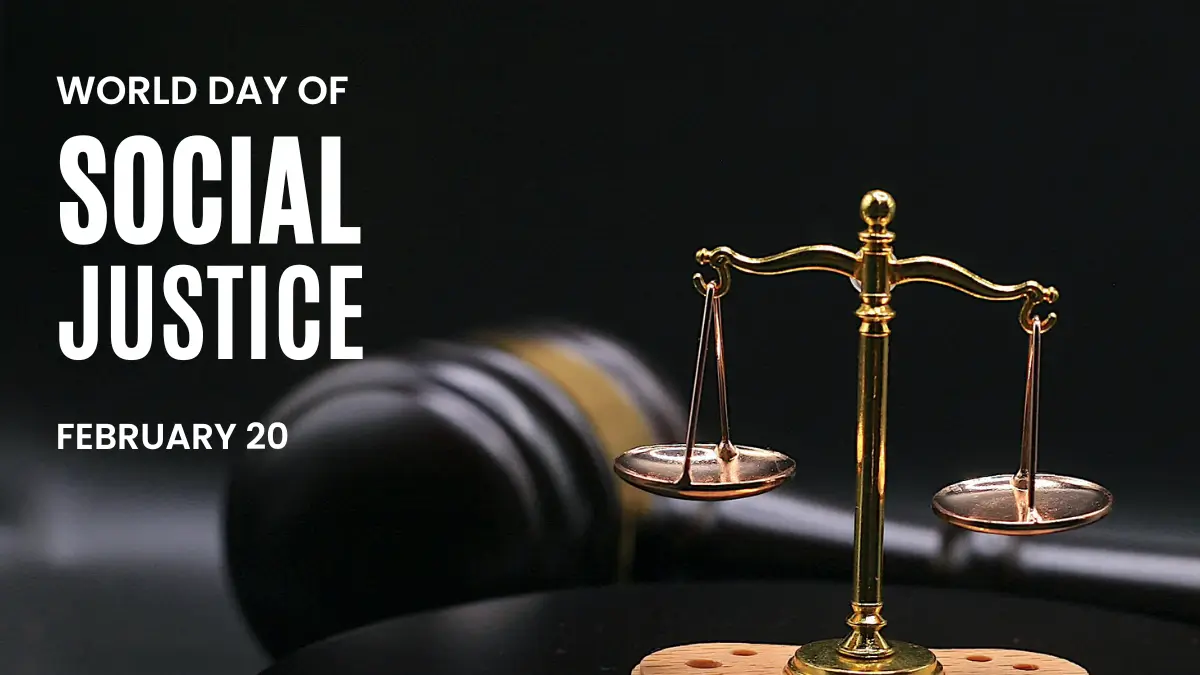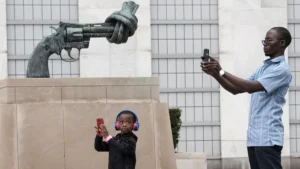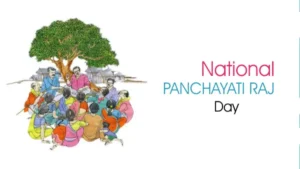Observed annually on February 20, the World Day of Social Justice highlights the need to promote fairness, equality, and inclusivity in societies across the world. Established by the United Nations (UN), this day aims to combat poverty, social exclusion, gender inequality, unemployment, human rights violations, and inadequate social protection systems.
As the world navigates global challenges like climate change, economic transformation, and social disparities, the 2025 observance gains significance in aligning international efforts toward a more just and sustainable future.
History of World Day of Social Justice
The origins of this day can be traced back to the World Summit for Social Development held in Copenhagen, Denmark, in 1995. During the summit:
- Over 100 political leaders pledged to prioritize poverty eradication, full employment, and stable societies.
- A global agreement was reached to place people at the center of development plans.
- The Copenhagen Declaration and Programme of Action was adopted, emphasizing the need for a socially just world.
Later, in November 2007, during its sixty-second session, the United Nations General Assembly (UNGA) officially proclaimed February 20 as the World Day of Social Justice. The day was first observed in 2009 and has since served as an opportunity for global leaders, policymakers, and civil society to address pressing social justice issues.
Significance of World Day of Social Justice
The observance of this day is a call to action for governments, organizations, and individuals to:
- Combat Poverty and Inequality – Promote economic and social policies that empower marginalized communities.
- Promote Full Employment and Decent Work – Ensure fair wages, better working conditions, and labor rights for all.
- Advance Gender Equity – Address discrimination and support equal opportunities for women and marginalized groups.
- Strengthen Social Protection Systems – Improve access to healthcare, education, and financial inclusion.
- Encourage Global Cooperation – Enhance international collaboration to build more resilient and inclusive economies.
By focusing on these areas, the World Day of Social Justice aims to build societies that provide equal opportunities, dignity, and security for all individuals.
Theme of World Day of Social Justice 2025
The theme for 2025 is “Strengthening a Just Transition for a Sustainable Future”.
Why This Theme Matters?
- The global community is facing unprecedented challenges, including climate change, economic transitions, and social inequalities.
- The focus will be on inclusive policies that ensure climate action results in better job opportunities, reduced inequalities, and sustainable development.
- The event takes on special importance as the world prepares for the Second World Summit for Social Development (WSSD2).
Key Highlights of the World Day of Social Justice 2025
The World Day of Social Justice 2025 focuses on:
- Promoting Social Justice within Multilateralism – Encouraging international collaboration to address social inequalities and economic disparities.
- Bridging Gaps and Building Alliances – Supporting the Global Coalition for Social Justice to create inclusive economic opportunities.
- Unlocking Productive Potential – Ensuring that poverty reduction and social justice remain at the core of global economic policies.
Topics for Discussion at the 2025 Event
The United Nations and its partners have outlined several critical topics for discussion in 2025:
1. The Role of Macroeconomic Policies in Ensuring Inclusive Growth
- How can trade policies and economic frameworks drive climate resilience and social justice?
- How do global financial institutions play a role in reducing economic inequality?
2. Equitable Transition to a Low-Carbon Economy
- What are the challenges in shifting to green energy while protecting workers in traditional industries?
- How can we create job-rich opportunities in sectors like renewable energy, green infrastructure, and critical minerals?
3. Financing Sustainable Economies
- Innovative financing mechanisms to support low-income countries.
- How can developing nations access green investment funds?
4. Strengthening Social Protection Systems
- Importance of education and skills training to prepare workers for the green economy.
- Strategies to ensure social security for marginalized groups.
Global Initiatives for Social Justice
1. The Global Coalition for Social Justice
This initiative seeks to bring together governments, trade unions, businesses, and civil society to work towards:
- Equitable economic growth
- Poverty reduction
- Enhanced labor rights
2. Centre for Dalit and Subaltern Studies (CDSS), India
The CDSS observes World Social Justice Day every year with special lectures. In 2023, the theme was “Overcoming Barriers and Unleashing Opportunities for Social Justice.”
3. Rajiv Gandhi National Institute of Youth Development (RGNIYD), India
The RGNIYD in Sriperumbudur, Tamil Nadu, is an Institute of National Importance under the Ministry of Youth Affairs and Sports, Government of India. It works toward:
- Inclusive growth by empowering disadvantaged youth.
- Capacity-building programs for SC and ST communities to improve leadership and entrepreneurial skills.
World Day of Social Justice 2025 – Summary
| Section | Details |
|---|---|
| Why in News? | The World Day of Social Justice is observed annually on February 20 to promote fairness, equality, and inclusivity. The 2025 theme is “Strengthening a Just Transition for a Sustainable Future.” |
| History | – Originated from the 1995 World Summit for Social Development in Copenhagen.- The UNGA officially proclaimed February 20 as World Day of Social Justice in November 2007.- First observed in 2009. |
| Significance | – Combat Poverty & Inequality: Promote inclusive economic policies.- Decent Work & Fair Wages: Ensure labor rights for all.- Gender Equity: Address discrimination and promote equal opportunities.- Strengthen Social Protection: Improve access to healthcare and education.- Global Cooperation: Foster international collaboration. |
| Theme of 2025 | “Strengthening a Just Transition for a Sustainable Future” |
| Why This Theme Matters? | – Addresses climate change, economic transition, and social inequalities.- Focuses on inclusive policies for sustainable development.- Prepares for the Second World Summit for Social Development (WSSD2). |
| Key Highlights of 2025 Observance | – Multilateralism for Social Justice: International cooperation to address inequality.- Bridging Gaps & Alliances: Global Coalition for Social Justice.- Unlocking Productive Potential: Keeping social justice at the core of global economic policies. |
| Topics for Discussion (2025 Event) | – Macroeconomic Policies & Inclusive Growth (Trade policies, financial institutions).- Equitable Low-Carbon Economy Transition (Green jobs, worker protection).- Financing Sustainable Economies (Green investment, low-income country support).- Strengthening Social Protection Systems (Education, skills training). |
| Global Initiatives | – Global Coalition for Social Justice (Economic growth, labor rights).- Centre for Dalit and Subaltern Studies (CDSS), India (Lectures on social justice).- Rajiv Gandhi National Institute of Youth Development (RGNIYD), India (Youth empowerment, leadership training). |



 International Day for Disarmament and No...
International Day for Disarmament and No...
 National Panchayati Raj Day 2026: Why 24...
National Panchayati Raj Day 2026: Why 24...
 National Safety Day 2026: Why March 4 Ma...
National Safety Day 2026: Why March 4 Ma...








